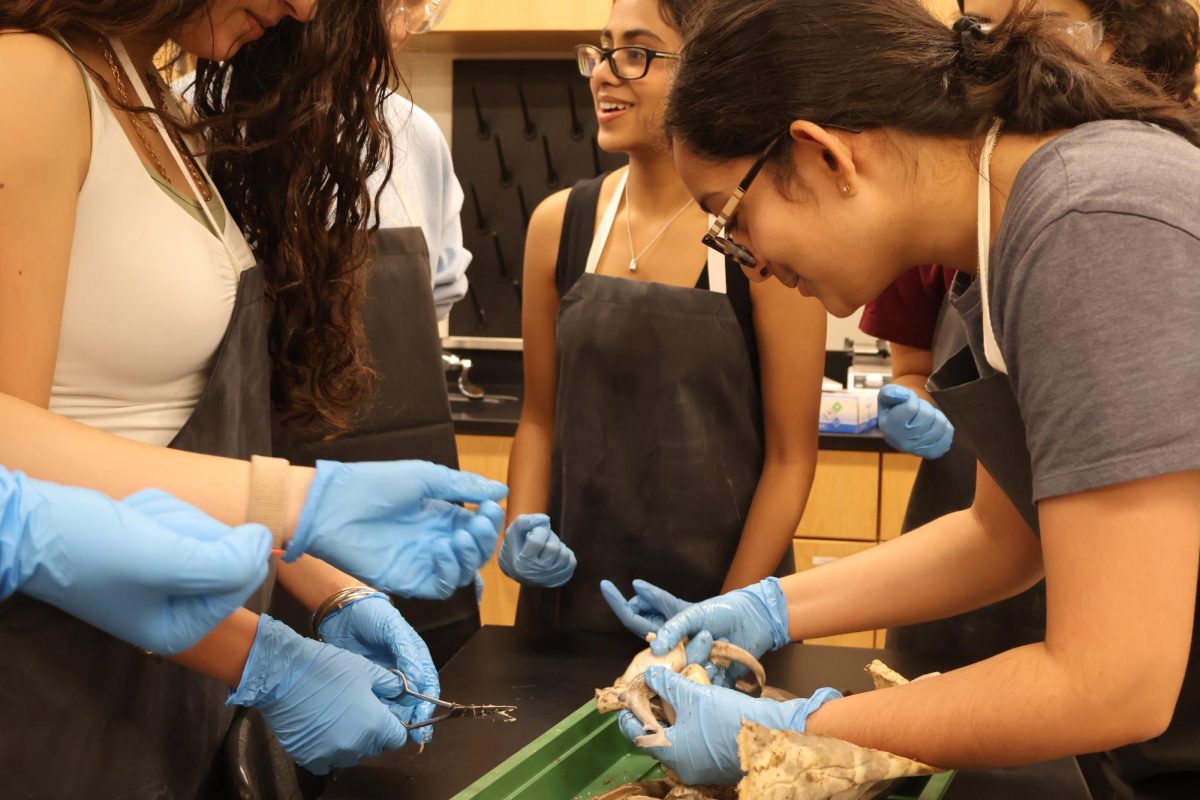“I don’t think about being a junior — I just think about my duty as President.”
Leading the largest organization on campus with over 550 members, Distributive Education Clubs of America (DECA) President Aiden Wen ’26 envisions a chapter filled with competitive success and community. But Wen is different: he is only a junior — unlike most of the past DECA presidents.
Shortly after Wen took on the role of president, the district introduced new policies and rules for DECA in order to combat district-wide budget cuts, forcing Wen and the rest of the organization to quickly adapt. The first of the changes was the Career and Technical Education (CTE) rule, requiring students to be registered in a CTE course to be considered a member. With this rule already taking a toll on membership, novel pre-competition checkpoints were also instated, where members had to pass a round prior to Districts, the first competition of the season.
“The coordination of all of these new requirements — and letting members [who had been in DECA in the past] acknowledge these changes — have been some of the new challenges that we’ve had to face this year,” Wen said.
In addition to maneuvering through the unprecedented policy changes that Wen has had to handle for the chapter, he hopes to change the general operations of the chapter through taking members’ feedback over the years and his own past experiences into account.
“One of the great things [about being a junior] is that you can have a lot of ideas, and you can go about those ideas very smoothly,” Wen said. “I hope to use this time to help the chapter as much as possible through addressing very common feedback.”
Wen’s workload looks different from prior presidents, not having to balance his duties with tasks such as college applications. Nonetheless, he hopes to support other officers who are seniors that do have to take on these additional responsibilities.
“Everyone has duties, and it’s important to follow these duties,” Wen said. “However, we are a family [and] a community, so we want to help each other out and step in [when officers] are in their busier times.”
Wen’s vision for this chapter revolves around bolstering competitive success through increasing training opportunities. The implementation of training pods, which are led by each training director, group members into their event clusters for training-specific events. This new method also allows for increased communication between officers and members, creating a culture of collaboration.
“We have not reached our peak — we are still developing as a chapter,” Wen said. “The idea is that one passionate training director can serve so many members and do so much good for our community [in these training pods].”
But Wen hopes to serve more than just his chapter. Leading one of the largest DECA chapters in Texas, Wen believes that Westwood DECA has a duty to provide resources to smaller and newer chapters across the state.
“The point of DECA is to give these real-life business opportunities to every student who wants to experience them,” Wen said. “As a larger chapter, we have a responsibility to contribute to that larger vision of DECA.”
Taking inspiration from past officers, Wen embraces both the past and present of the chapter. While he hopes to maintain traditions like the annual canned food drive and DECA Day (the chapter’s mock competition), he aims to expand these events and center them around training.
“The concept of training is relatively new with these past presidents, and since then, we’ve expanded a lot on their implementations,” Wen said.
As the president of DECA, Wen works around the clock — from the moment he comes to school. Checking in with sponsor Ms. Desireé Wells in the mornings, Wen works on tasks such as registration and communicating chapter updates to her. During and after school, he prioritizes delegating tasks and planning new ideas for the chapter.
“One thing that I’ve really focused on this year is doing a lot of automation, programming, and formulas to maximize accuracy [with tasks such as event assignments],” Wen said.
Finding community is one of the primary reasons students join organizations such as DECA. Yet with a chapter as large as Westwood’s, promoting this sense of belonging and community has not been a priority for past officer teams, with other responsibilities like registration and competition preparation taking precedence. But Wen is changing that: he hopes that the creation of training pods not only bolster competitive success but also serve as a forum for chapter bonding.
“Creating community is definitely easier with 100 members [which we had] five years ago than [with] 500 members like it is today,” Wen said. “But if you have such a large group, the idea of family evolves.”





















